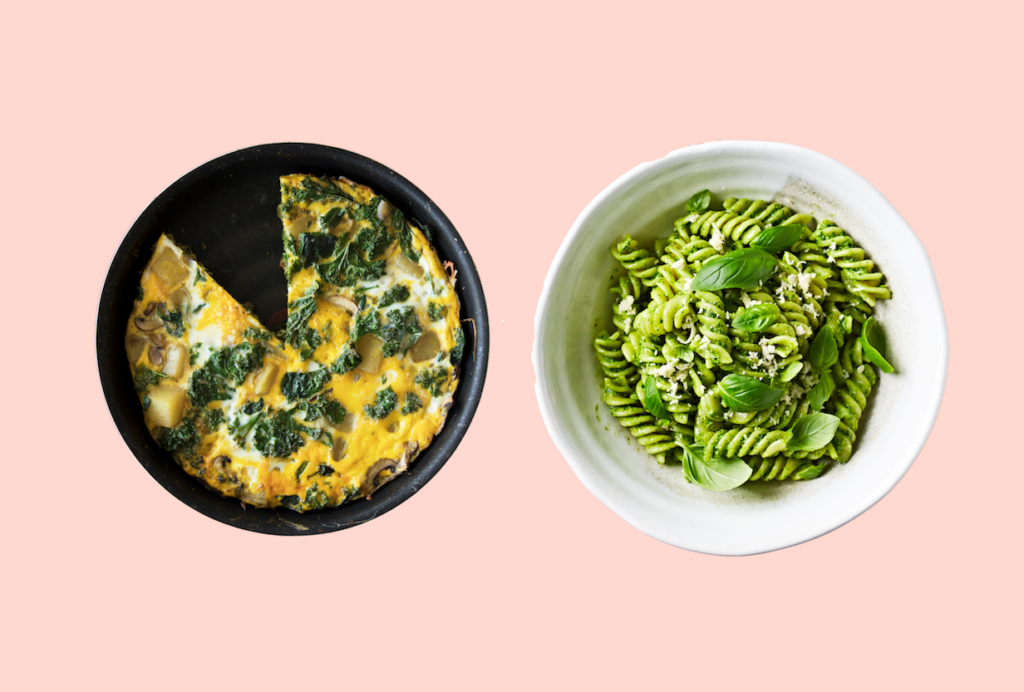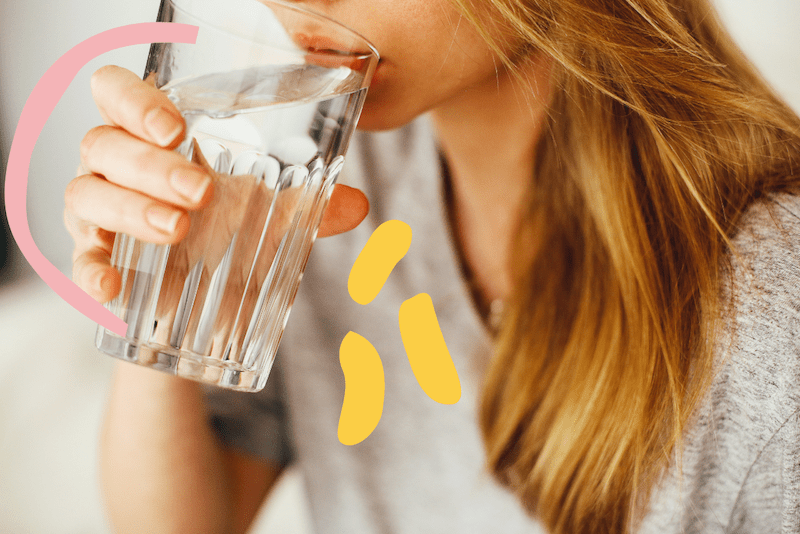We all want flawless skin, but most of us are not blessed with it. The good news? You don’t need to spend a fortune on fancy serums or invasive treatments to achieve a gorgeous, healthy glow. Sometimes the most effective skincare secrets are hiding in your kitchen cupboard, your daily routine, or simple lifestyle tweaks that cost absolutely nothing.
From the foods that can transform your complexion from within to the sleep habits that work better than any expensive night cream, these natural approaches have been quietly delivering results for centuries.
Optimise Your Diet For Radiant Skin
Healthy skin begins with a balanced diet that includes eating the right foods, as well as avoiding those that aren’t so good for your skin. Your skin is your body’s largest organ, and what you consume directly affects its appearance, texture, and overall health.
Refined carbs, processed meals, and fried foods are particularly damaging to your skin. These foods cause inflammation, spike insulin levels, and can lead to increased oil production and acne breakouts. However, you don’t have to completely eliminate them from your diet; moderation is key, and we all deserve a treat, after all.
The best diet for skin health should be rich in fruits, vegetables, and whole grains. Focus on foods high in antioxidants, omega-3 fatty acids, and vitamins A, C, and E. Think of hydrating foods like celery, cucumber, watermelon, and watercress, which contain high water content and help maintain skin hydration from within. Antioxidant powerhouses such as blueberries and raspberries are rich in anthocyanins that protect against free radical damage, whilst green tea provides polyphenols that reduce inflammation throughout the body.
For essential fatty acids that maintain your skin’s barrier function, incorporate omega-3 rich sardines, herring, and salmon into your weekly meal rotation. Anti-inflammatory ingredients like onions, garlic, and leeks contain sulphur compounds that support collagen production, whilst warming spices such as cinnamon and ginger work as natural anti-inflammatories. Don’t forget vitamin-rich options like avocados for their vitamin E and healthy fats, sweet potatoes for beta-carotene that converts to vitamin A, and cruciferous vegetables like broccoli, kale, and Brussels sprouts for their vitamin C content essential for collagen synthesis.
The key is to aim for at least five portions of fruits and vegetables daily (more, really), incorporating a rainbow of colours to ensure you’re getting a wide variety of skin-nourishing nutrients.

Daily Sunscreen Protection
Applying sunscreen every day is absolutely crucial to skin health, as guarding your skin from the sun slows down the ageing process and helps keep skin cancer at bay. UV radiation is responsible for up to 80% of visible facial ageing signs, including wrinkles, age spots, and loss of elasticity.
When selecting a sunscreen, look for one with a high SPF of at least 30 (though SPF 50 is preferable), water resistance, and broad-spectrum protection that shields against both UVA and UVB rays. UVA rays penetrate deeper into the skin and cause long-term damage, whilst UVB rays are responsible for burning. Apply roughly a teaspoon amount for your face and neck, and remember to reapply every two hours or immediately after swimming or sweating. Don’t forget often-missed areas like your ears, neck, and the backs of your hands.
Sunscreen should always be used even if it’s overcast or cloudy, as up to 90% of UV rays can penetrate cloud cover. Your skin is still exposed whilst driving or walking, and UV damage can accumulate even in seemingly mild conditions. To avoid forgetting to apply sunscreen, make it a habit to incorporate it into your morning routine, applying it as the final step before makeup.

Prioritise Quality Sleep
The more hours of quality rest you get each night, the more time your body has to repair damaged skin cells and regenerate new ones. During deep sleep, your body increases production of growth hormone, which is essential for tissue repair and collagen production.
The benefits are not just realised in the distant future – quite frequently, the effects will become apparent the following day. If you get enough rest, you’ll need less makeup because your skin will look fresh, rejuvenated, and naturally glowing.
The recommended amount of sleep for a healthy adult is 7 to 9 hours. If you’re not getting that hallowed amount, subsequent sleeplessness could cause an increase in cortisol levels, which in turn accelerates the breakdown of collagen and results in under-eye bags, dark circles, and premature ageing. Yawning and squinting also cause the breakdown of collagen and elastin around the eye area.
To improve your sleep quality, maintain a consistent sleep schedule even on weekends, and create a cool, dark environment ideally between 16-19°C. Consider using a silk or satin pillowcase to reduce friction on your skin, and elevate your head slightly to reduce morning puffiness. Avoid screens for at least an hour before bedtime to allow your natural circadian rhythms to prepare your body for rest.
Read: Is beauty sleep a real thing?
Maintain Optimal Hydration
Many people fail to recognise that proper hydration plays a supporting role in overall skin health. Whilst drinking water won’t magically transform your complexion overnight, staying well-hydrated helps your body function optimally, which can contribute to healthier-looking skin.
Aim for 2-3 litres of water daily, increasing this amount if you exercise regularly or live in a hot climate. Start your day with a large glass of water, and incorporate water-rich foods like cucumbers, watermelon, and oranges throughout your meals. A simple way to monitor your hydration levels is to check your urine colour – pale yellow indicates you’re on track.
Severe dehydration can make your skin appear less plump and radiant, though the effects of mild dehydration on skin appearance are often overstated. Think of proper hydration as one piece of the puzzle rather than a miracle cure – it supports your overall health, which in turn can contribute to a more vibrant complexion when combined with the other habits in this guide.

Manage And Reduce Stress Levels
The skin is just one of the many physiological systems that might be negatively impacted by chronic stress. When you’re stressed, your body produces more cortisol, which increases oil production and weakens the skin’s ability to defend itself against acne-causing bacteria. Stress can also trigger inflammatory skin conditions like eczema, psoriasis, and rosacea.
Stress management can be tremendously beneficial for your skin health. For immediate stress relief, try deep breathing exercises using the 4-7-8 technique: inhale for four counts, hold for seven, and exhale for eight. Progressive muscle relaxation and even brief 5-10 minute meditation sessions can provide significant benefits when practised regularly.
Long-term stress management strategies include establishing a regular yoga practice, incorporating mindfulness meditation into your daily routine, maintaining consistent exercise habits, and creating clear work-life boundaries. Don’t hesitate to seek support from friends, family, or professionals when you need it—your skin will reflect your improved mental wellbeing.
Consider incorporating weekly face mask sessions as both a skincare treatment and a stress-relief ritual. The process of making a homemade face mask is simple and therapeutic—you can use a simple ripe avocado mask or explore more complex recipes featuring ingredients from your kitchen.

Establish A Gentle Cleansing Routine
Proper cleansing is fundamental to healthy skin, yet many people either over-cleanse or use harsh products that strip the skin’s natural protective barrier. Your cleansing routine should remove dirt, oil, makeup, and environmental pollutants without causing irritation or dryness.
In the morning, use a gentle, pH-balanced cleanser with lukewarm water, as hot water strips your skin’s natural oils. Pat your face dry with a clean towel rather than rubbing, which can cause irritation. For your evening routine, consider double cleansing if you wear makeup or sunscreen: start with an oil-based cleanser to remove makeup and sunscreen, then follow with a water-based cleanser to remove any remaining impurities. Always be extra gentle around the delicate eye area.
Weekly deep cleaning can include gentle exfoliation once or twice with a mild scrub or enzyme exfoliant, and clay masks can help draw out impurities from pores. Always follow any deep cleaning treatment with a moisturiser to restore hydration. Whilst expensive products aren’t necessary for good skin, when shopping for natural skincare products in the UK, look for ingredients like chamomile, aloe vera, and oat extract, which are gentle yet effective for most skin types.

Regular Exercise & Movement
Physical activity is one of the most underrated contributors to healthy, glowing skin. Exercise increases blood circulation, delivering oxygen and nutrients to skin cells whilst carrying away waste products and free radicals. This enhanced blood flow gives you that coveted post-workout glow and promotes cell regeneration.
The skin benefits of regular exercise include increased blood flow that nourishes skin cells and promotes healing, whilst sweating helps unclog pores when followed by proper cleansing. Exercise also reduces stress hormones that can trigger breakouts, improves sleep quality which aids skin repair, and enhances lymphatic drainage to reduce puffiness.
Aim for at least 150 minutes of moderate-intensity exercise weekly, including both cardio and strength training. Always remove makeup before exercising and cleanse your face immediately after workouts to prevent pore-clogging. Stay hydrated before, during, and after exercise, and wear breathable, moisture-wicking fabrics to prevent skin irritation.
If high-intensity workouts aren’t your preference, low-impact options like brisk walking, swimming (though rinse chlorine off immediately), yoga, dancing, or cycling can be equally beneficial. Remember that consistency is more important than intensity—even a daily 20-minute walk can significantly improve your circulation and, consequently, your skin’s appearance.
The Bottom Line
For additional natural remedies and treatments, you could check out this comprehensive rundown of natural remedies for glowing skin, featuring the aforementioned avocado alongside aloe vera, rose water, and more. Your skin will thank you for implementing these evidence-based, natural approaches to skincare.





